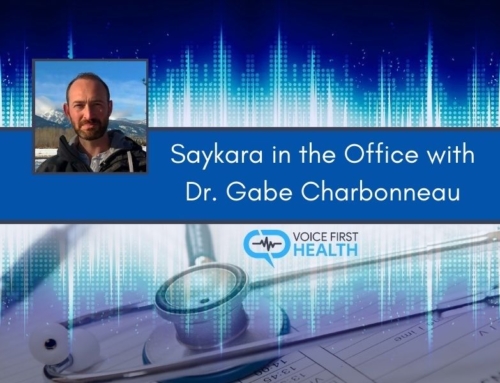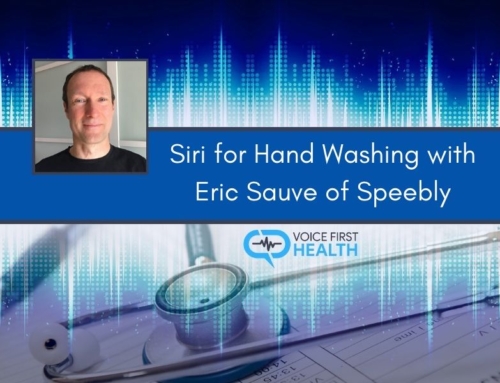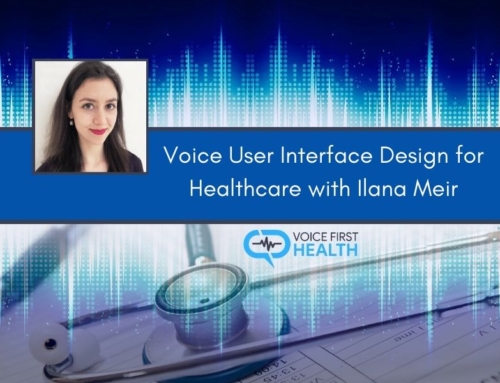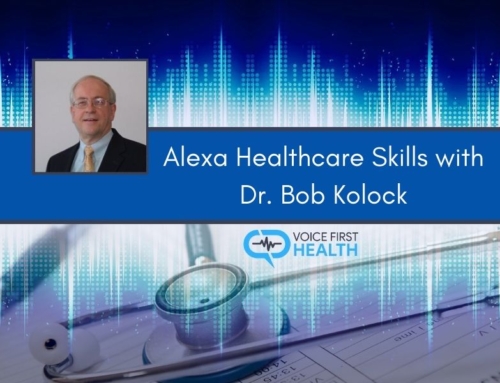VFH Episode 17
In this episode, Teri welcomes Dr. John Loughnane, the Chief of Clinical Innovation and the Medical Director of Life Choices Palliative Care Program at Commonwealth Care Alliance.
Dr. Loughnane has previously served as Senior Vice President of Medical Services as well as Medical Director of Commonwealth Community Care for Commonwealth Care Alliance’s Inpatient and Palliative Care Services. While at CCA, he has spearheaded the formation of CCA’s Inpatient Medical Service at Boston Medical Center, Community Paramedicine Program, and Life Choices End of Life Program. He talks to me about some of the fascinating and impactful work they are doing in the voice first health space.
Key points from Dr. Loughnane
- How Commonwealth Care Alliance is using voice first technology to help the lives of their patients.
Commonwealth Care Alliance (CCA)
- A nonprofit community-based healthcare organization that focuses on individuals with complex medical health and social needs, including persons with disabilities.
- It was one of the first dual-eligible special needs plans which provided patients with both Medicare and Medicaid which means they had both complexity of their medical issues and social determinants.
- The plan had a significant risk-adjusted premium. Each month CCA was given a certain amount of dollars which was risk-adjusted to patients’ medical complexity.
- Dr. Loughnane started the Palliative Care/End-of-Life Program at CCA.
- He has been taking care of patients with physical disabilities. Caring for these patients presented different challenges which led Dr. Loughnane and his colleagues to start thinking about how to build a care system that met more of the needs. Voice technology came up as the best solution for interacting with the patients especially those without classic functional abilities.
- Winter Street Ventures: The CCA’s health technology accelerator affiliate
Voice Use Cases
- They have a pilot program with their voice first technology partner, LifePod Solutions.
- They did an original grant-funded pilot program which was using voice in the typical reactive format, which taught them a lot of lessons that they then used to strategize in a more formal process to start working on a more proactive voice first technology solution.
- Use case one: patients, especially those with severe medical diseases, intellectual disability, and physical disability want to have some social connection because they suffer from loneliness. For example, twice a day the LifePod device asks a patient who loves music whether he wants to hear his favourite music. The patient says yes and gets to engage with the music. Other patients want to connect with the news or call different people, which the LifePod facilitates.
- Use case two: using the voice first technology to provide reminders about healthcare issues like, “Get up and move”, “Dance”, “It’s time to take your medication”, and many others. This is patient-focused and non-judgemental. They are asking patients what they would like voice to do for them.
The language we are using and how we engage voice needs to be more open in nature.

Future Scenarios
- Once they have full HIPPA compliance, the care plans can be individualized to each patient’s needs.
- Voice will connect patients with similar health problems by forming social groups. This will enable learning and shared experiences. It will be a way to build a voice community.
- Voice will continue to enable patients to control their homes, environments, schedules and have an organization component. Patients will be able to define what works for them and what works for their families.
Potential shifts in where healthcare is provided
- With voice first technology, hospitals will be for a very small minority of patients because the technology will allow healthcare practitioners to care for patients at home. Both primary and acute care will be delivered at home through voice.
Challenges with LifePod
- The wake words and how you phrase things is still a challenge, but it’s improving.
- They need to get HIPPA compliance so they can make better care plans.
- There needs to be an augmentation of the technology’s ability to work with voices that have physical limitations, like for a patient with Parkinson’s. The sensitivities of the speakers and microphones need to be continually worked on so the technology can benefit everyone.
- The ongoing ability to have multiple languages should be continually worked on.
The Meaning of Voice First Health to Dr. Loughnane
- It means patients having the ability to engage with augmented care from their medical/social/behavioral health providers in a way that they’ve never been able to deliver in the past.









